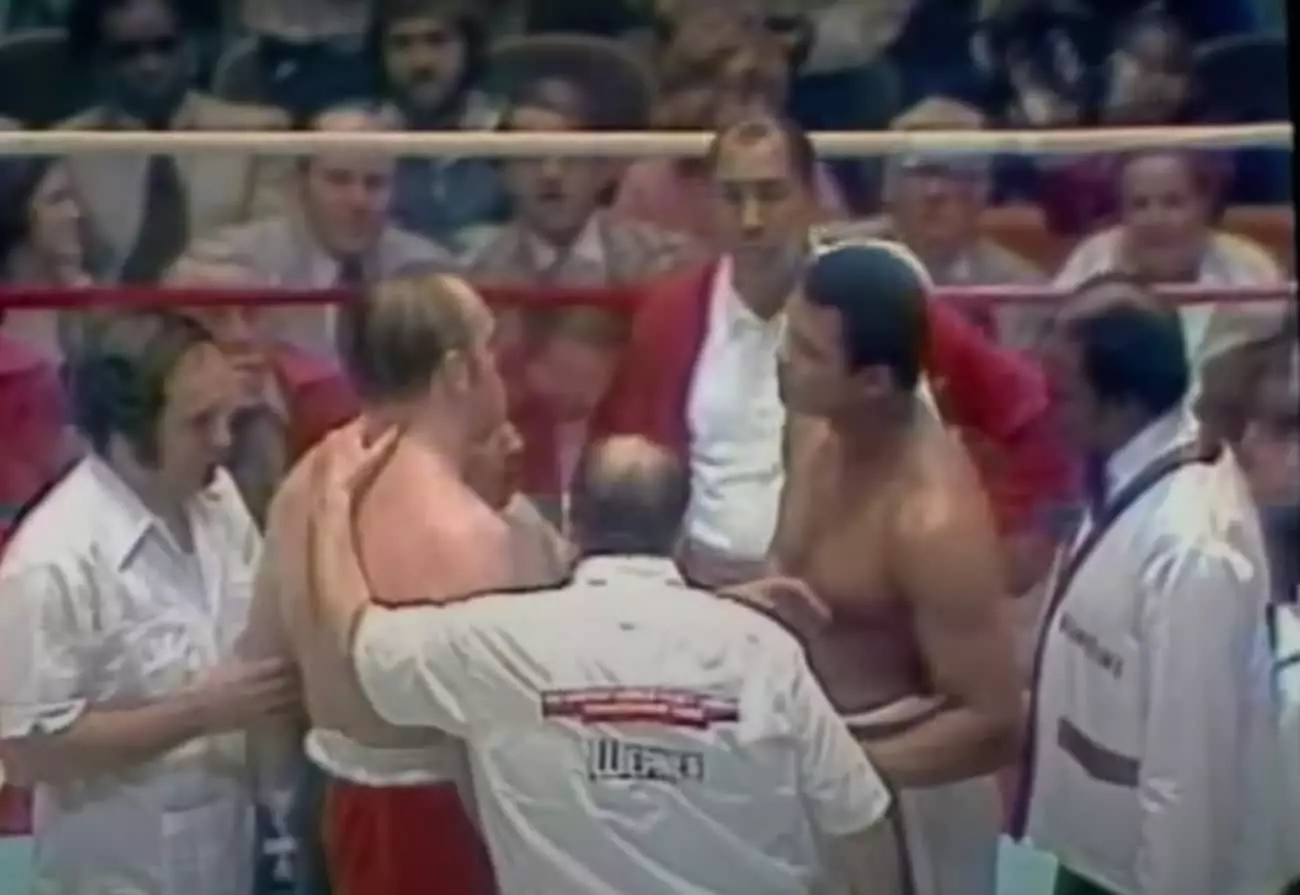In the annals of boxing history, few fights resonate with the same gravity as Muhammad Ali’s bout against Chuck Wepner on March 24, 1975. At a time when Ali had cemented his legacy with a stunning victory against George Foreman and emerged as a dominant force in the heavyweight division, Wepner was considered an afterthought in the grand narrative of the sport. Known as “The Bayonne Bleeder,” Wepner was rarely regarded as a serious contender, yet his journey to the ring that fateful night was an inspiring tale of resilience, ambition, and the will to defy the odds.
The fight was more than just a title defense for Ali; it was a test of courage for Wepner. Standing across from the iconic champion, who had captivated the world with his athleticism and charisma, the underdog faced a monumental challenge. It was a landscape littered with doubts. Wepner’s relatively lackluster record—30 wins, 9 losses, and 2 draws—did little to inspire confidence in his ability to challenge the reigning king of boxing. However, what Wepner lacked in pedigree, he made up for with a fierce determination and an opportunity that had finally arrived, thanks in part to promoter Don King’s promise.
The Conditions of Combat: Training and Tenacity
Months prior to the fight, Wepner found himself buoyed by a focused training regimen for the first time in his career. No longer juggling a day job while preparing for fights, he channeled his efforts into an intensive training camp that prepared him physically and mentally for the challenge ahead. At 36, the heavyweight knew that this might be his one shot at glory, and he approached it with the fervor of a man who had tasted the bitterness of defeat too often.
In stark contrast, Ali, then 33 years old, was not at his peak mental focus, a fact he would later acknowledge. Although in good shape, he lacked the intensity that had marked his preparation for the Foreman fight. As the hype surrounding the match intensified, Ali seemed less interested in the bout itself and more in the theatrics. Reports suggested that in a bid to provoke Wepner, Ali provocatively asked for racial slurs to be used against him, a request Wepner wisely declined, opting instead to maintain a sense of decorum.
The Fight: An Underdog’s Unlikely Moment of Glory
As the bell rang, the dynamics of the fight played out in unexpected ways. Wepner’s strategy was simple yet effective; he pressed Ali, throwing awkward punches and securing illegal “rabbit punches” that frustrated the champion. Yet it was in the ninth round when the crowd’s disbelief morphed into sheer astonishment: Chuck Wepner knocked Muhammad Ali down. This moment, reminiscent of classic Hollywood drama, changed the trajectory of the fight and became a symbol of the heart and spirit of an underdog fighter.
Ali, visibly shaken and incensed, responded with a ferocity that showcased why he was so feared in the ring. Over the ensuing rounds, he began to dominate, landing brutal combinations and leaving Wepner battered with cuts and swelling. Yet even as the fight turned increasingly unfavorable for him, Wepner’s resolve remained unbroken. He soldiered on, reflecting the essence of an athlete willing to sacrifice everything in pursuit of respect and validation.
The Aftermath: A Legacy Forged in the Fire of Adversity
Ultimately, the fight concluded with a TKO, but the consequences rippled far beyond the canvas of the boxing ring. As the referee waved off the match, an exhausted Wepner would walk away from the event with newfound notoriety and respect. He had thrown enough punches and taken enough hits to etch his name into the narrative of boxing history.
The most lasting impact of Wepner’s story materialized in unexpected ways. Inspired by the underdog’s gallantry, a fledgling writer named Sylvester Stallone channeled Wepner’s spirit into the creation of the iconic film “Rocky.” Wepner’s name became synonymous with perseverance, demonstrating that heroism does not always wear the crown; sometimes, it stands quietly in the corners of defeat, ready to rise again.
Even now, more than four decades later, Chuck Wepner remains a beacon of hope for anyone striving to overcome insurmountable odds. At 86 years old, he exemplifies the greatest lesson from that fight: it’s not about the victory but the courage to face adversity head-on. The essence of what Wepner embodies—the spirit of survival—remains vibrant and serves as a powerful reminder for future generations: every champion was once an underdog, and every underdog has the potential to change the world.

